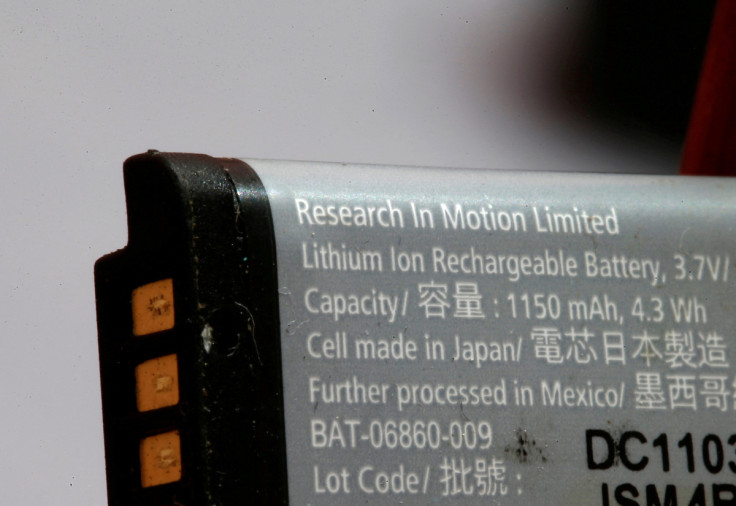Lithium-ion Explosions Present Challenges To The Future Of Battery Technology

A JetBlue passenger's portable charger spontaneously combusted last week as his flight from New York to Fort Lauderdale waited at its gate. A viral video ensued, depicting frantic passengers dumping water bottles onto a smoking backpack that had only moments ago been a "ball of fire."
Although this incident resulted in no injuries, it adds to a list of over 60 lithium battery incidents reported by the Federal Aviation Authority (FAA) in 2023. The FAA reported 72 incidents "involving smoke, fire or extreme heat" in 2022.
It's not just personal electronics; the New York City Fire Department responded to over 200 electric scooter and bicycle battery fires in 2022. There were claims that a lithium-ion electric scooter battery was to blame for a five-alarm fire in the Bronx that injured seven in March 2023.
Though these incidents remain exceedingly rare on a per-capita basis, they pose a long-term concern. Lithium-ion batteries power nearly every critical piece of modern technology from cell phones to pacemakers. Global usage of these batteries is projected to surge as the global transition to electric transportation and grid systems continues to progress in coming years.
While the commercial applicability of current lithium-ion battery technology remains unrivaled to presently available alternatives, recent events like airline combustion incidents suggest that some form of change to the status quo of global battery production may be necessary.
Lithium: The Future?
Lithium-ion batteries are prone to a condition called "thermal runaway," which, while rare, typically happens when a previously degraded or damaged lithium-ion battery overheats.
The scientific community's primary response to this defect of lithium-ion batteries has been attempting to develop an electric battery using an alternative base material -- sodium, which is far less reactive and presents multiple advantages when compared to lithium.
Sodium is readily available at an industrial scale and can be easily retrieved from the oceans, whereas lithium is extracted through the relatively ecologically taxing processes of hard-rock mining or brine evaporation.
Lithium miners have also received substantial backlash from indigenous communities and conservationist activists over the industry's detrimental effects on local water tables and animal migratory patterns.
Global demand for lithium batteries is currently projected to increase over six-fold by 2030. Feasible, large-scale sodium batteries would offer a far less destructive alternative to fueling the global transition away from fossil fuels, its proponents argue.
Current sodium battery technology is only considered feasible for applications such as grid-scale storage and heavy transportation (semi-trucks and cargo ships). But with a significant, multi-billion dollar global research and development effort underway -- primarily spanning Chinese, European and U.S.-based university and private researchers -- the development of widely-applicable sodium batteries may be closer than previously expected.
Still, the FAA and FDNY's lithium incident lists will continue to grow in the absence of a major technological breakthrough, considering the proliferation of existing lithium battery technology. But the green future may not be powered by lithium, after all, as long as incidents like last week's explosion on the JetBlue flight continue to pile up.
© Copyright IBTimes 2025. All rights reserved.






















